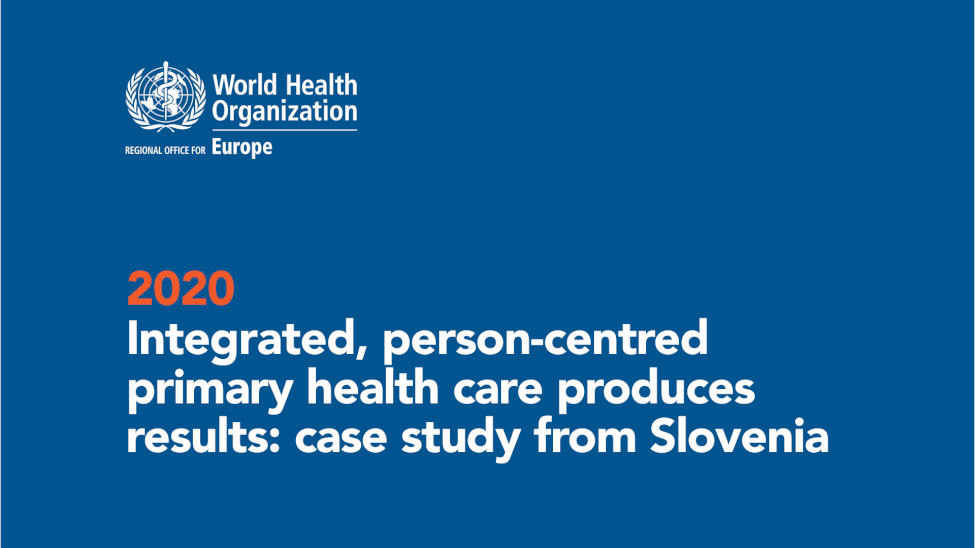by Zalika Klemenc Ketiš.
Recently, WHO has published a report entitled “Integrated, person-centred primary health care produces results: case study from Slovenia”(1). Integrated care can be described as a coherent and coordinated set of services planned, managed and offered to individual service users by a number of organisations and a range of cooperating professionals and informal carers (2). In Slovenia, integrated care is practiced in family medicine practices through interdisciplinary primary care teams, practising person-centred care (3).
In the WHO report, Slovenia was recognized as a notable exception regarding developing effective primary care systems. The country was assessed to have an impressive primary care which performs very well. This could be partly attributed also to the successful integration of public health and primary care. Such way of work has contributed to an impressive decline in the burden of disease due to non-communicable diseases and a rapid increase in life expectancy at birth. The whole WHO report can be found here: https://www.euro.who.int/en/countries/slovenia/publications/integrated,-person-centred-primary-health-care-produces-results-case-study-from-slovenia-2020
References:
- Anon. Integrated, person-centred primary health care produces results: case study from Slovenia. Copenhagen: WHO; 2020.
- Raak A, Mur-Veeman I, Hardy B, Steenbergen M, Paulus A. Integrated care in Europe. Description and comparison of integrated care in six EU countries. Maarssen: Elsevier Gezondheidzorg; 2003.
- Poplas Susic A, Svab I, Klemenc Ketis Z. Upgrading the model of care in family medicine: a Slovenian example. Public Health Panorama. 2018;4(3):550-5.

